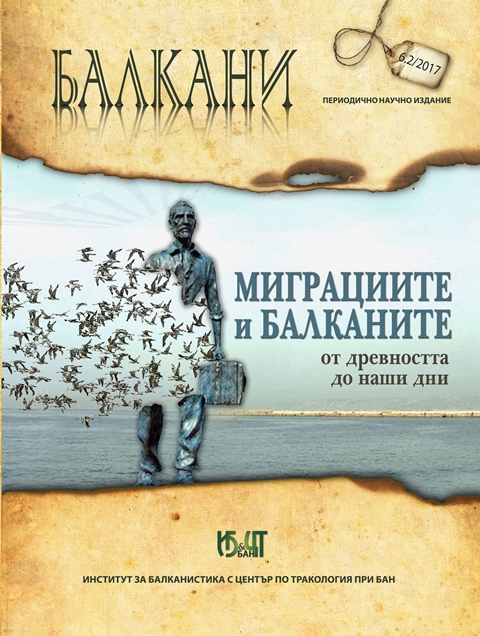ЕПОСЪТ ЗА ДИГЕНИС АКРИТАС: ПРЕСЕЧНИ ТОЧКИ МЕЖДУ ВИЗАНТИЯ И АРАБИТЕ.
THE DIGENIS AKRITAS FOLK EPIC: INTERACTIONS OF BYZANTINES AND ARABS
About a "migrant" across Byzantine and Arab cultural space, and identity
Author(s): Zdravka MihaylovaSubject(s): History, Language and Literature Studies, Cultural history, Studies of Literature, Comparative history, History of ideas, Ancient World, Theology and Religion, Comparative Study of Literature, Greek Literature, Other Language Literature, History of Religion
Published by: Институт за балканистика с Център по тракология - Българска академия на науките
Keywords: Byzantine and Arab medieval empires; cultural syncretism; fluctuatingrelations; intercultural exchange; Islam and Christianity;
Summary/Abstract: Cultural exchange between Byzantium and the Arabs can be traced in literature, science and arts during periods of peaceful co-existence, constituting evidence of a shared spiritual topos for Byzantines and Arabs. Although the Arab Caliphate repeatedly attacked the Byzantine Empire, often conquering territory, there was also peaceful interaction between the two polities, mainly trade and cultural exchange. This paper sheds light through the folk epic of Digenis Akritas on a syncretic identity forged during the early years of Islam and the Caliphate, their spread across the Arabian Peninsula and around the Mediterranean and the sieges of Constantinople and Thessaloniki (904 CE), in the context of their conflict and contiguousness with Byzantium. Neighbouring the Islamic world is reflected in the tradition of Akrites (populations with special status living in the easterly border areas of Asia Minor), protecting the Byzantine Empire against raids by Muslim Arabs and later Seljuk Turks. The Byzantine epic about the hero Digenis Akritas celebrated in folk ballads (Akritic ballads) is based on historical events. The original long epic, combining Greek, Byzantine, and Asian motifs, originated in the 10th century and was further developed during the 12th century. It was recorded in several versions between the 12th and 17th centuries, the oldest blending popular and literary language.
Journal: БАЛКАНИ
- Issue Year: 6/2017
- Issue No: 2
- Page Range: 8-13
- Page Count: 6
- Language: Bulgarian

